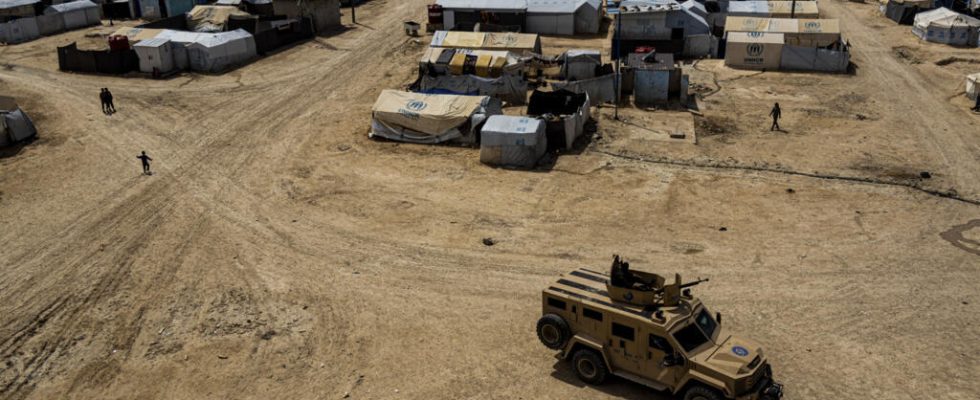Iraq continues to repatriate its nationals from the al-Hol refugee camp in northeastern Syria. This camp mainly houses wives and children of Daesh fighters. To avoid a resurgence of the Islamic State group, Iraq has been calling on all states since this summer to repatriate their citizens. This Saturday, 192 families reached Iraq by bus.
1 min
With our correspondent in Baghdad, Marie-Charlotte Roupie
776 people, mainly women and children, crossed the Syrian border to return toIraq, by bus. They had lived for years in the Syrian al-Hol camp which still shelters nearly 50,000 people, families of Daesh fighters or militants. These are displaced Syrians, Iraqi refugees and more than 10,000 foreigners from around sixty countries, families of jihadists from the Islamic State organization.
Once back in Iraq, these Iraqi citizens are welcomed at the Jeddah rehabilitation camp, near Mosul, in the north of the country. There, they have access to therapy sessions and educational programs to try to erase the precepts of the Islamic State group. Since January, nearly 6,000 have returned to Iraq.
For the spokesperson for the Iraqi Ministry of Migration and Displaced Persons, these repatriations are intended to defuse a time bomb. Letting “the children of Daesh” grow up in these camps without supervision would put us at risk of training future fighters. In June 2023, the Iraqi government called on the international community to follow its example.
Read alsoSyria: to perpetuate its ideology, IS targets children in al-Hol displaced persons camp
